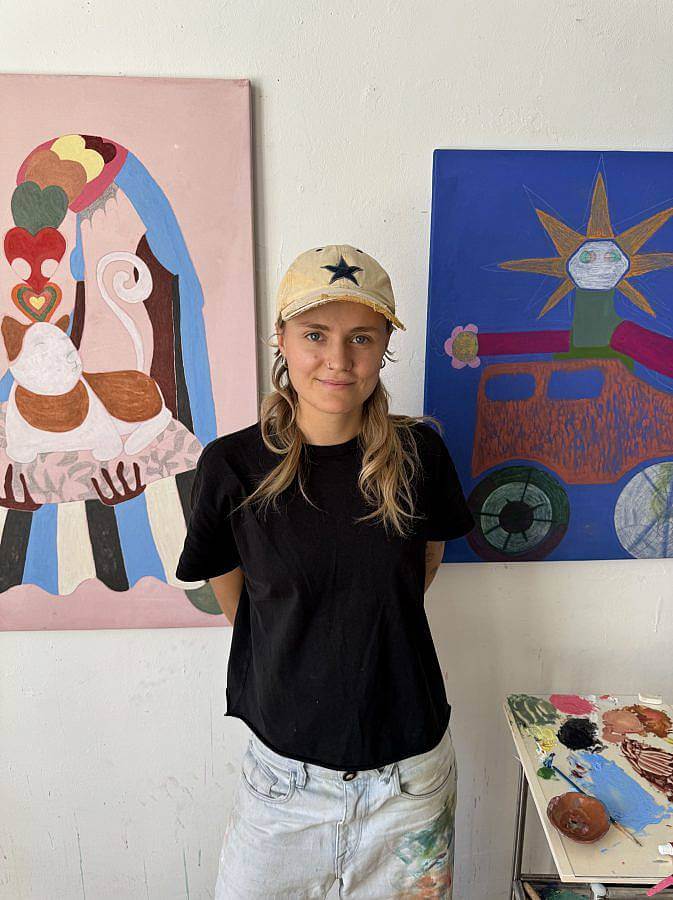Tell us about yourself, your background, and what you do.
My name is Alina, I am 23 years old, a skateboarder and artist raised in the south of Germany. I work as a skateboard teacher and I am currently studying painting in Vienna.
How long have you lived in Vienna and what brought you there? How has it influenced your work?
I only moved to Vienna last September to start my studies here. It has influenced my work a lot. Mainly because of the studio space which allows me to work bigger and make more of a mess while doing so. I used to draw a lot at home at a table. Now I want to learn to translate my drawings into bigger pieces and I am exploring the many possibilities painting has to offer.
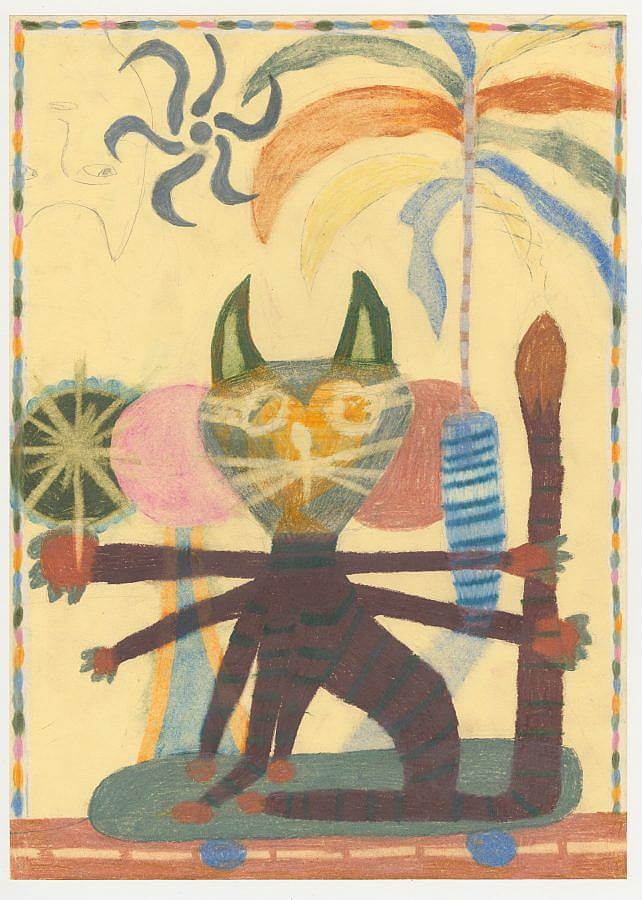
How did you begin skateboarding? What about it do you enjoy most?
I started skateboarding when I was 11 years old, living in a small village in Germany and saving all my pocket money to buy a shitty skateboard from a sports shop. I fell in love with it immediately, really enjoying the speed and adrenaline, being outside, the endless possibilities as well as the creativity and personality one can add through certain tricks and style. I also love that it gave me the opportunity to work as a skateboard teacher mainly with children. It gives my life a lot of purpose.
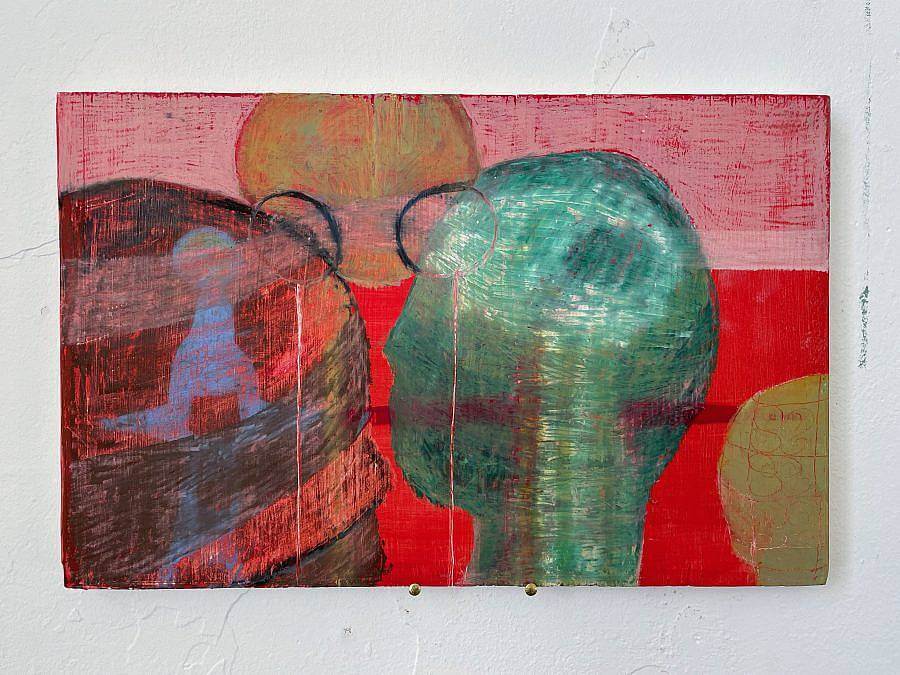
In what ways has skating impacted your practice as an artist, and vice versa?
Skating was the only thing I did for many years. When I was 16, I had to stop because of an injury and started making art again to distract myself. Skateboarding has taught me so much! I lost all joy in doing it when I realized I will not be able to pursue it professionally. But when I started skating again after my two-year break I shifted my focus to the joy I was getting out of it. I stopped pressuring myself. I apply this to my art process. Skating has taught me to be patient and enjoy the process. I also learned how to deal with frustration. When a trick doesn’t work out instead of getting frustrated I move on to the next trick and come back to it later. When a part of a painting/drawing isn’t working out I do the same.
How would you describe your creative practice? What does your process look like?
My creative practice mainly consist of drawing and painting. My process is a mixture of intuitive chaos and conscious clean up. I start with a vague idea and usually end up with something completely different. I like to experiment with different methods such as layering and scratching or erasing, allowing my work change during the process and freeing myself from the pressure of making mistakes. I like to use bold and bright colors but I choose them very consciously and less intuitive.
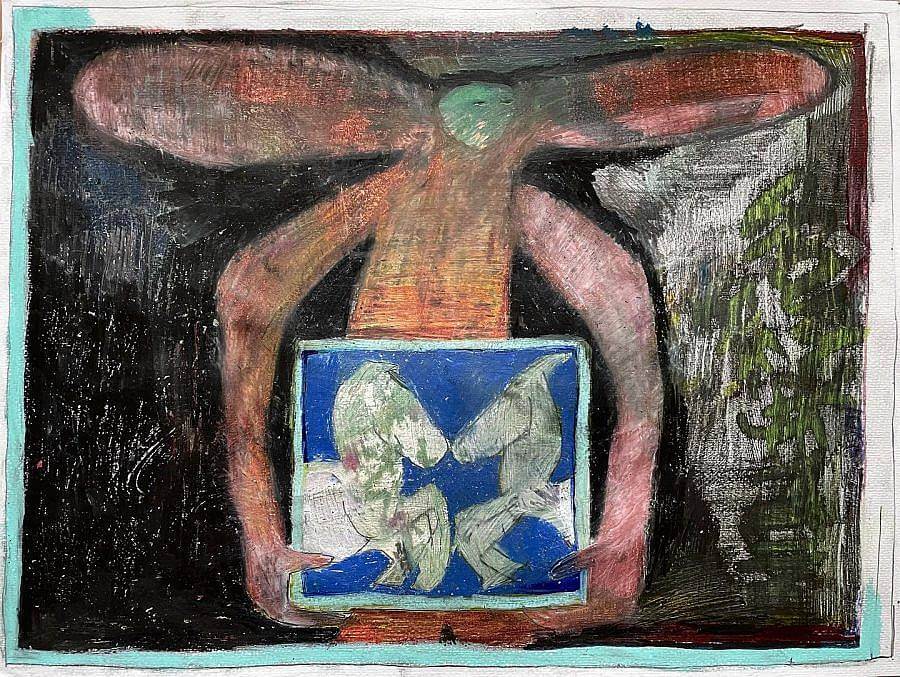
At times, it seems there are no firm boundaries between your painting and drawing practices–they begin to overlap and blend into each other. What do you enjoy about blurring those lines?
Blurring the lines between painting and drawing feels like blurring the lines of expectations a painting or a drawing have to fulfill. It adds to the possibilities of visual outcome and gives the work more freedom to shift to where it wants to be.
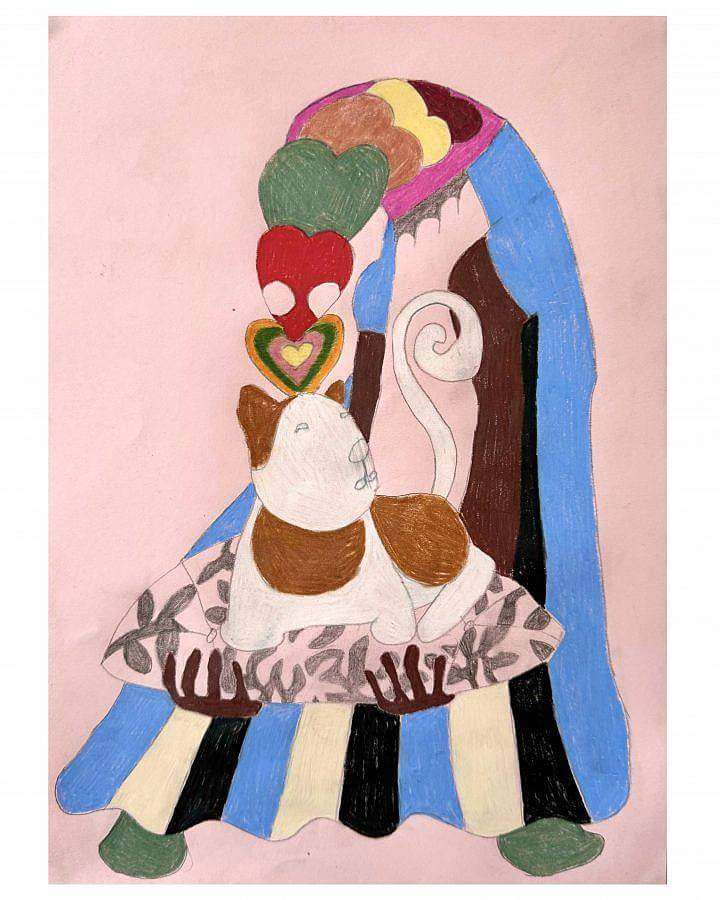
Hearts, suns and stars are recurring motifs in your work. What draws you to them and what significance do they hold?
They feel like I am speaking a universal language but the words mean something different to everyone. Their significance is deeply rooted in my childhood and my love for my mother and her love for these symbols draws me to them again and again.
Your work is incredibly bold, vibrant, and playful. How would you describe your visual language?
My visual language consists of genderless creatures and shapes, vibrant colors and interesting textures. I experiment with different mediums and compositions, looking to create a deeper relationship with myself and my practice.
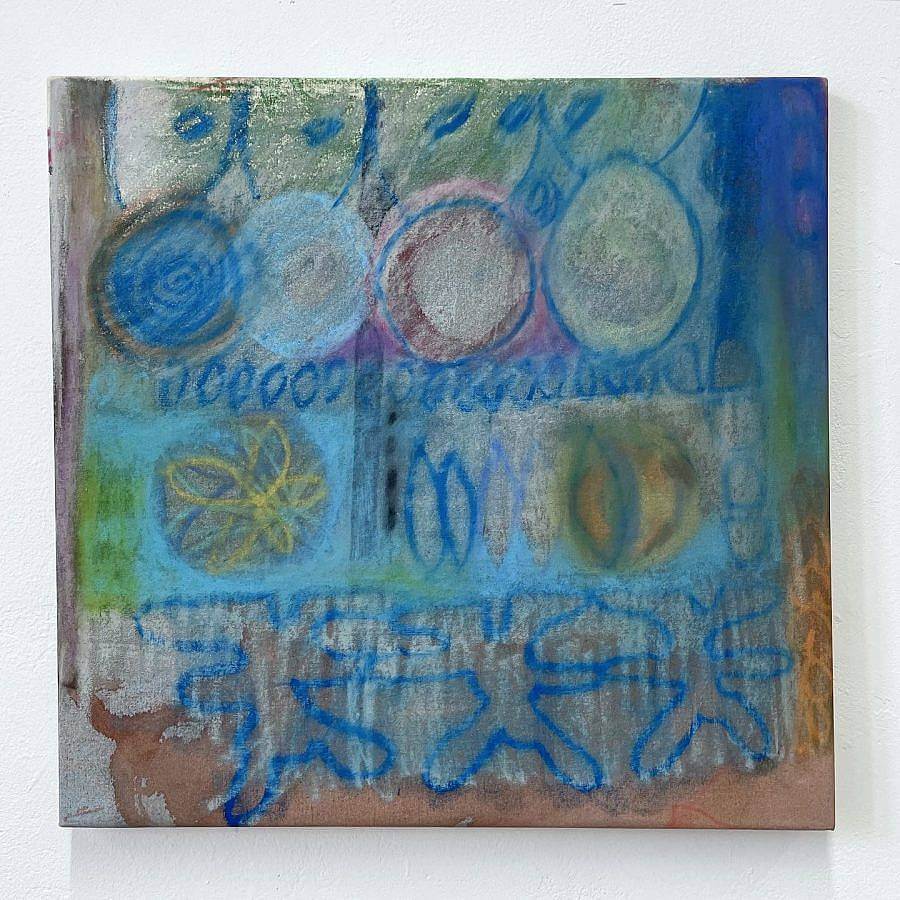
What is influencing your work right now?
My inner child’s desire to create, explore and experiment as well as summer.
Who are some of your favorite artists?
Children, Anthony Coleman, Louise Bourgeoise, Martin Cross, and Hilma af Klint.
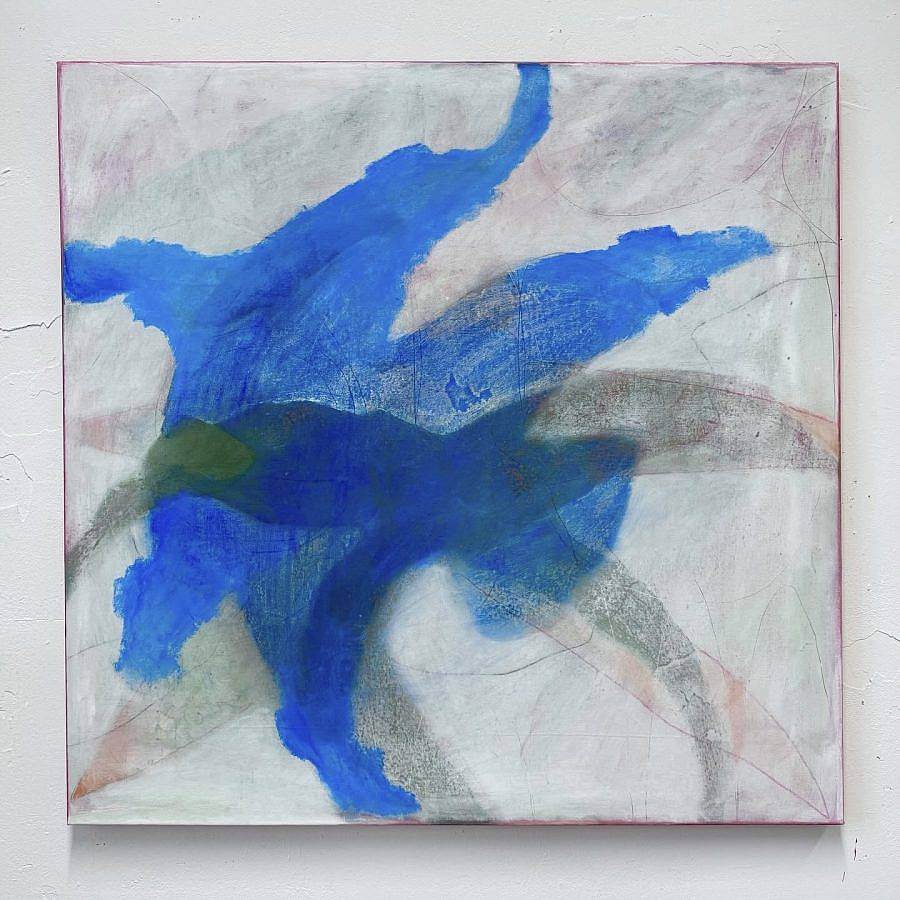
Interview conducted and edited by Ellie Schrader. Images courtesy of artist.
